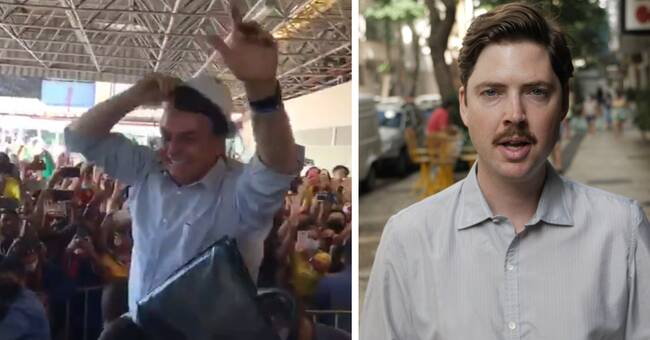When the corona pandemic struck with full force against Brazil in April, many saw the beginning of the end for ex-military Bolsonaro.
The president dismissed the risks with covid-19, he quarreled with health ministers and governors who wanted to see strong measures for social distancing and Bolsonaro tried to control the police and judiciary that initiated proceedings against his own sons.
The alternating scandals caused Bolsonaro to lose support.
The death toll rose rapidly and the president's words that the coronavirus was just a small cold were getting louder and louder.
Even among Bolsonaro's supporters, dissatisfaction grew with the way the government handled the pandemic - not least within the well-educated middle class, which was annoyed that the president repeatedly questioned and went against accepted scientific truths.
Increased support from the poor
But in the poorer strata of society there was a greater understanding of Bolsonaro's argument that measures for social distancing risk damaging the economy and jobs too much and thus do greater harm than covid-19 itself - "medicine must not be worse than the disease", with the president's own words.
And support for Bolsonaro increased, especially after the government rolled out an ambitious support program for poor families with cash payments reaching 67 million Brazilians.
During the pandemic, Bolsonaro has built on and expanded the grant systems designed by left-wing President Lula da Silva.
Some even say that Bolsonaro is trying to copy Lula's recipe for success - the ex-president is still very popular with large sections of the population.
And on the front pages of Brazilian weekly magazines, ironic photo montages and cartoons can now be seen where Bolsonaro is portrayed as the left-wing icon Lula.
Has Bolsonaro been left?
Does this investment in financial contributions to the poorest in society mean that Bolsonaro has become left-wing?
No, it is obviously not that simple.
But it is a path choice that gives signals about how the president can conceivably design his re-election campaign.
And it is a political orientation that has already revealed cracks in Bolsonaro's fragile coalition.
Opinion polls clearly show how Bolsonaro lost popularity in the more affluent parts of society but gained support in economically disadvantaged areas.
And among entrepreneurs and investors who have supported Bolsonaro in the hope of a tighter economic policy, there is now growing concern that subsidy systems will undermine the budget balance and crack the spending ceiling.
A skilled political player
The new tensions can also be seen within the government - not least through the president's infected relationship with the finance minister and market liberal Paulo Guedes.
How, then, will Bolsonaro succeed in keeping his alliance together with a view to the presidential election in two years' time?
There are many indications that the strategy will be a mix of value conservatism in moral matters to appease the influential and growing Free Church base as well as financial support programs for poor groups hard hit by the corona crisis.
Large parts of the business community will grit their teeth but will most likely still support Bolsonaro against a possible left-wing challenger.
It may seem like a high stakes game and a difficult balancing act for the president.
But Bolsonaro has proven to be a far more skilled political player than most people thought - that he now seems to emerge stronger from the crisis year 2020 shows it with all the desired clarity.

